In informal conversations, the Bulgarians use “Merci” more often than “Благодаря (Blagodarya)” to say “Thanks”, and “Ciao” more often than “Довиждане (Dovizhdane)” to say “Bye”. In Italian, “Ciao” can mean both “Hello” and “Bye”, but in Bulgarian and several other languages in nearby countries, “Ciao” only means “Bye”. I also often hear people say “Чао, Чао (Ciao Ciao)”, which sounds like a very endearing “Bye Bye”.
Today, I will need to say “Чао, Чао” to Sofia and Bulgaria, and many people I have met and appreciated in the past five months. Time truly flies.
Thinking back, I am grateful for the friend who encouraged me to try the Fulbright program, and I got great advice from another Fulbright alum colleague and several other colleagues on my application. Unlike other Fulbrighters in Bulgaria who often have had deep ties with Bulgaria for decades, I did not know too much about Bulgaria when I submitted my Fulbright proposal back in fall 2019. Fortunately, my proposal passed the Phase I review later in that same semester, and got approved in Spring 2020 after the phase II matching. My visit was originally planned in Spring 2021 (in the 2020-2021 cycle), but was postponed to Fall 2021 (in the next 2021-2022 cycle) due to the pandemic. Although the delay was only by one semester, all the uncertainties made the wait feel a lot longer. Once on site, though, I was glad for how things played out, and I am very grateful for all the help and support I have received during my stay.
In that proposal, I had included a plan to lead a faculty-led trip for WCU students to visit Bulgaria as an extension of the project. As promised, we proposed such a faculty-led trip in Bulgaria in May 2022, and the responses from our students so far who are interested in joining this trip are encouraging. It took us a lot of efforts in the course planning, and we are glad for the progress thus far. We hope that the pandemic will be in control soon to allow the trip to happen. We will co-offer two courses on this trip with another history professor, and our travel students will again share the interdisciplinary collaborations. By “again”, I meant that I thoroughly enjoyed such a combo trip with a sports management professor to Japan, and I am equally looking forward to the Bulgarian trip. I enjoyed my stay in Bulgaria very much, and I hope that our students will have an opportunity to gain an immersive experience here, too.
Meanwhile, I hope that I haven’t caused too much trouble for my host, as they have helped me at every step such as setting up the course, getting research protocol approval, purchasing equipment, recruiting students, answering every question I have, and introducing me to more colleagues. It is a lot of work and I am beyond grateful for all of it. Their semester officially ends in late Jan 2022, but since I am leaving earlier than that, I have been urging students to finish their projects sooner and two groups were ready to demonstrate to me and then leave their projects in a classroom for public viewing. The Fulbright staff and some of our colleagues were able to make it there.
Some student said that I was the first person they met from the U.S. and they enjoyed my course, no matter how much effort they could manage to spend in my course (it was an elective course after all). The groups enjoyed the teamwork and their creative expression in the project development. When they finished the projects, they felt a great sense of accomplishment.
Some colleagues have shared their life stories and hobbies with me, beyond what’s happening on campus. Quite a few of them speak German very well, besides English, and they might also be fluent in or know enough about Russian, French, Spanish, Italian, etc. Being multilingual seems quite common here. Many colleagues love hiking and skiing and there are so many great trails around. The closest ski trail is at the Vitosha Mountain about 15 min drive away. When the weather’s good, they could go there after lunch and be back way before dinner. There are several even better tails in the Rila and Pirin Mountains area about an hour drive away. I find it very interesting that a colleague often does folk dancing about twice a week and participates in the dancing festivals nationwide. Next time when I see a dancing group, it’ll be fun to find out what they normally do for work. The several of us who often go to campus have gotten used to say hi and chat along the hallway, and then I’d be gone one day. No matter how long a visit could last, I enjoyed my visit, and I hope that they had a good time, too.
My stay in Sofia was also a precious opportunity for me to meet up with other Fulbright Scholars and Research Students who visited Sofia this fall from around U.S. The Bulgarian Fulbright Commission has welcomed us into a big family, invited us to many events, supported us in various projects, and been very attentive to each and every Fulbrighter. During those gatherings, no matter what everyone’s research background was (music, history, journalism, political science, architecture, and so on), there was always something we each enjoyed sharing and we learned a lot from each other. It was nice to have our families mingle together, too. I wish that I could report on each and every one of them to talk about their exciting projects, but the nature of everyone’s work might not be so easy to be presented at a website. Well, here is one link that I could share with you all from Dr. Ian MacMillen‘s class. His research interest is on Anthropology of Music (Ethnomusicology), and he can play almost all kinds of musical instruments, including the traditional ones in Bulgaria and other classical ones. Besides his other research topics and the interviews he needed to do for his next book, he offered a class at New Bulgarian University for the students to explore the sacred sights and sounds at the four religious venues positioned around a road crossing in central Sofia, dubbed as the “Tolerance Square“. In the photo below as pointed out by the blue arrows from left to right, there are an Orthodox church probably dated from the 10th century, a Catholic church rebuilt in 2006 after being demolished in WWII, a synagogue built in 1905, and a mosque completed in 1566. If without mutual respect and acceptance, these four venues wouldn’t be placed so close to each other. Ian’s website will be expanded to showcase more of his student work till late Jan 2022, but there are already some photos and soundtracks captured from real life near or at those venues, which brought back lots of memories.
Ian’s website,”Tolerance Square“, reminded me again the power of sound, beyond words and imagery. There were many folk musicians in Sofia who were really good, such as the bagpipe player near the National Art Gallery, the saxophone player at the metro station, the accordion player in the park, and many others who might be more random in their itineraries. There are a few videos on YouTube where the famous musicians would play on the street to see how people would react. It turned out that there wouldn’t be many people who would stop and listen, let alone making a donation, which would have been a tiny fraction of the ticket price to attend their concerts. Although such videos might imply a conclusion that people just didn’t know the true value of the music or how pitiful a busy life would often deprive people of the enjoyable moments in life, I think that part of the reason was also that it was embarrassing, at least for me, to stay around a street musician for too long, and I would often choose to stay on my usual route to make my passing by them as normal as possible. Buying a concert ticket gives one the right to stay during the performance, in a sense, while leaving some cash to the street musicians often draws a gesture of excessive appreciation that seems a bit intrusive to their performance. Also, I am a bit afraid whether the street musicians who go to certain places regularly would set up an unrealistic expectation that we would give money every day, that would make it more of an obligation than a moment of appreciation. No matter how we reacted to a street musician, I really enjoyed their live performance, which was much more alive and real than a studio recording, and I wish that I had captured some of their sounds.
The views along my way to university on the last day before I left Sofia are below. It was a chilly morning when the small lake was frozen with a sheet of ice forming on the surface, while the sunshine was bright.
While it took a lot of work for my TU-Sofia colleagues to host a visiting scholar, my colleagues at WCU have also been shouldering the load that would have been mine if I were on campus this fall. Without their unwavering support and selfless help, this trip wouldn’t happen, either.
This is the last post on this blog site. I appreciate all who have made my trip possible and memorable.
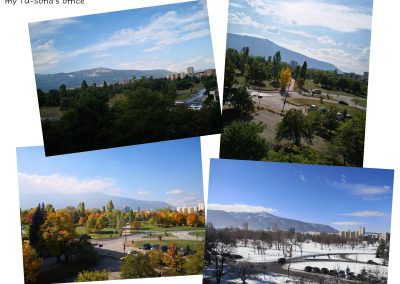

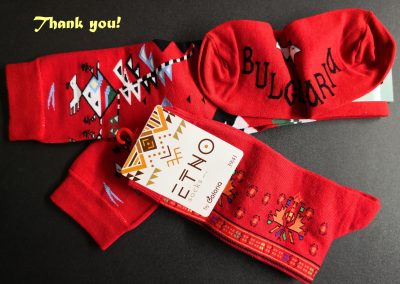
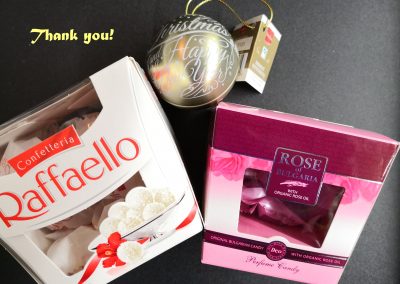
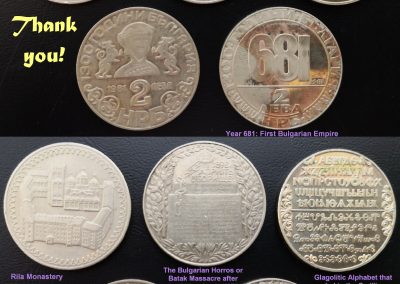
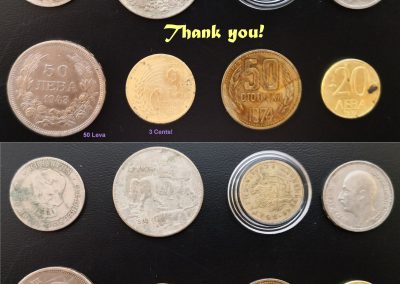
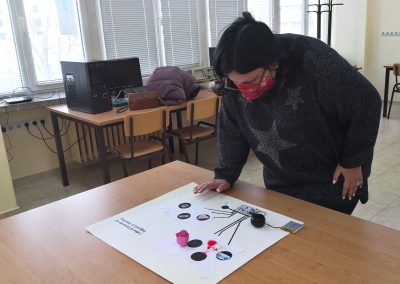
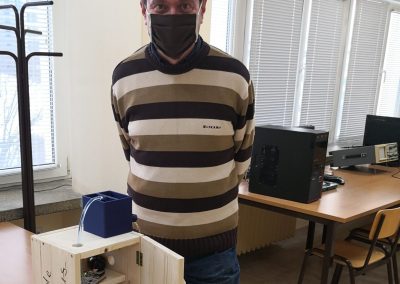

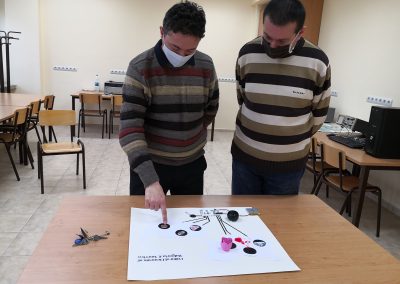
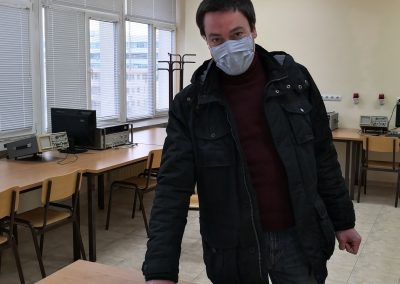
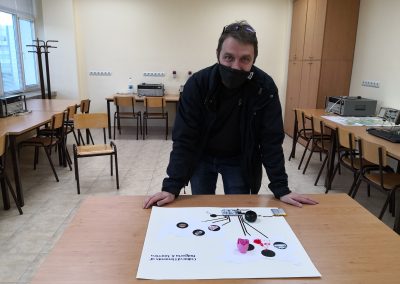
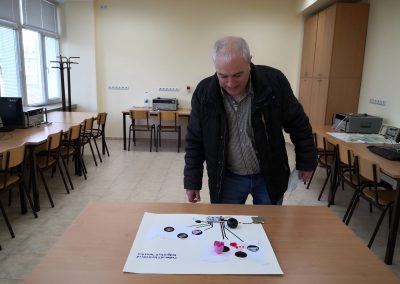
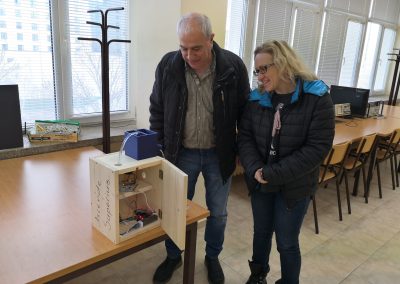
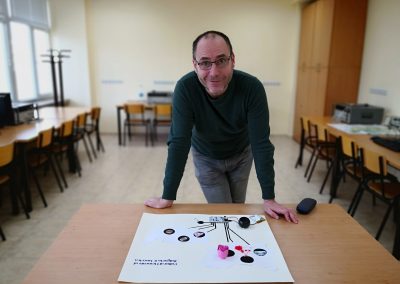

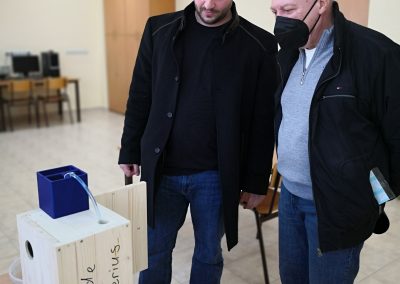
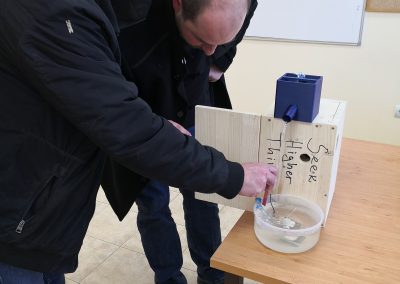

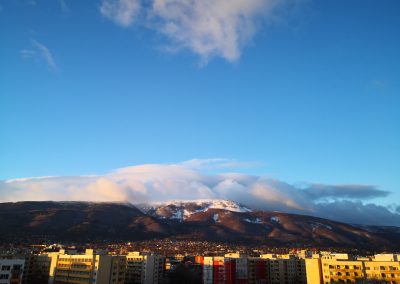


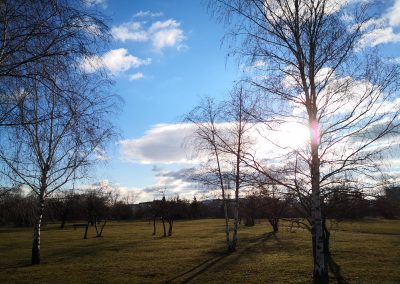
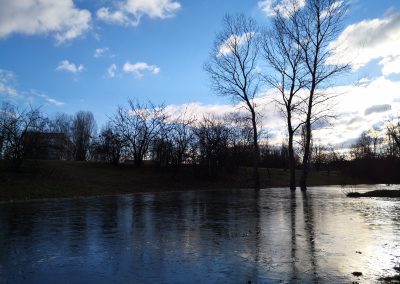

Yanjun,
It’s a wonderful story. I enjoyed reading your post very much. It must have been a precious experience. I wish I could visit Sofia sometime in the future.
Jay K. Lee
Dr. Lee, thank you very much for liking the posts! It was a wonderful trip, and somehow it already felt like from another life while I am now back home. 🙂 Sofia, and many other towns, mountains, and attractions, in Bulgaria are worth visiting, indeed.